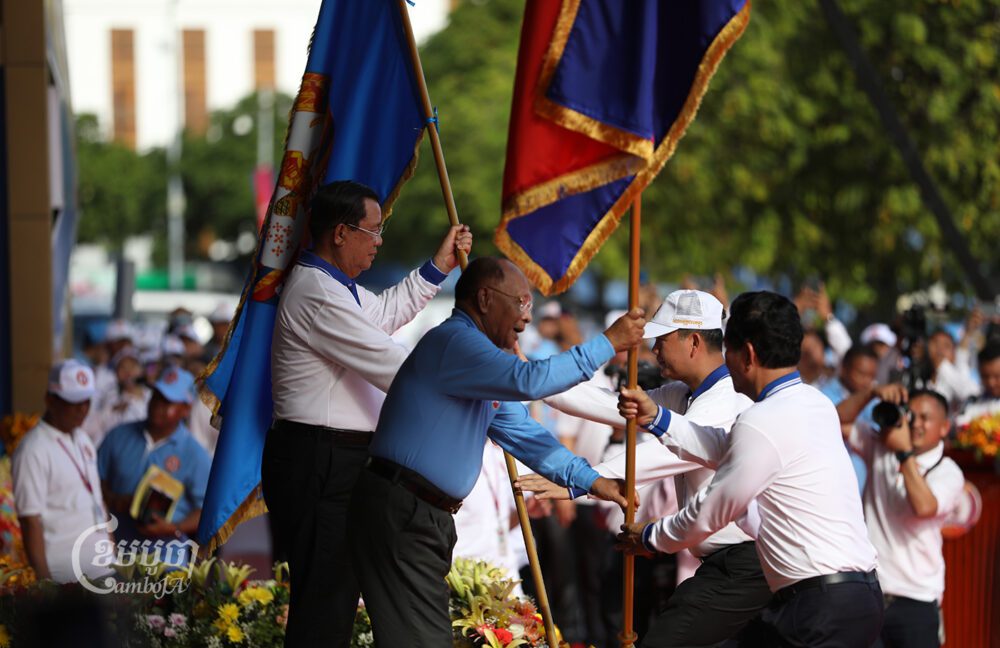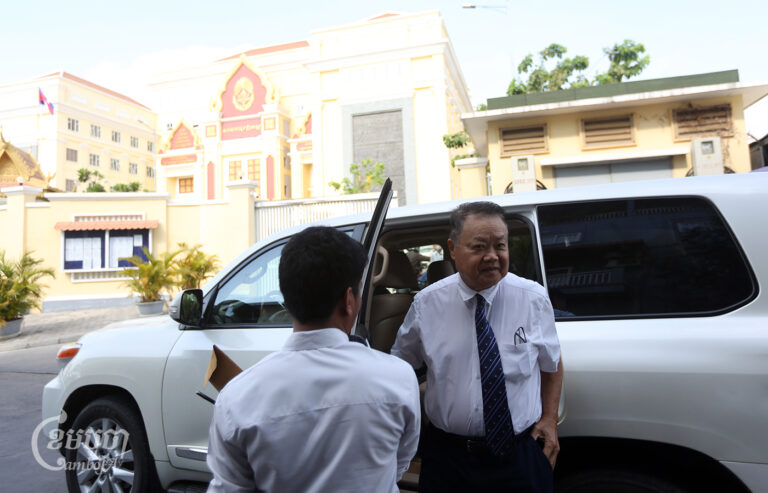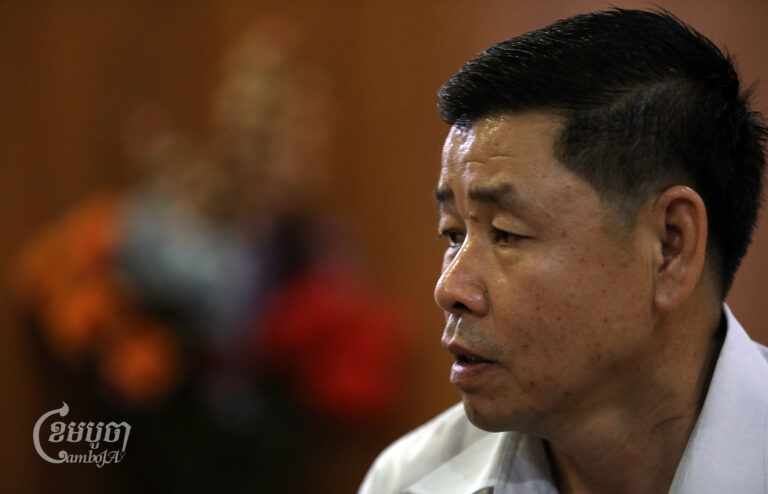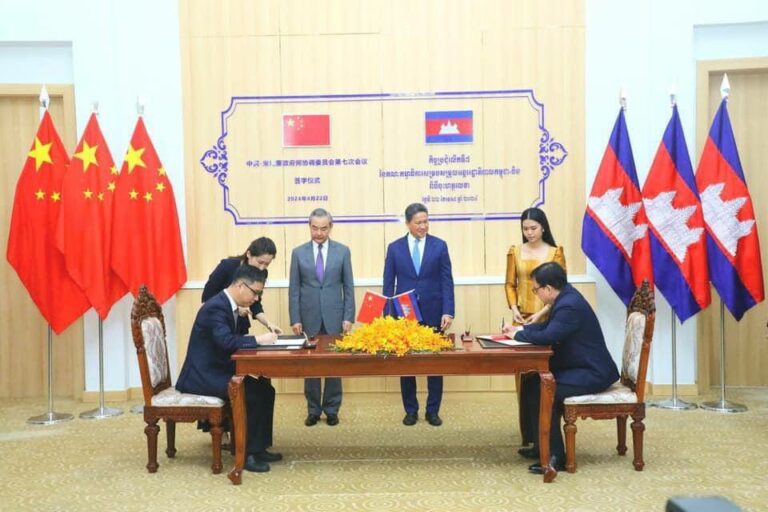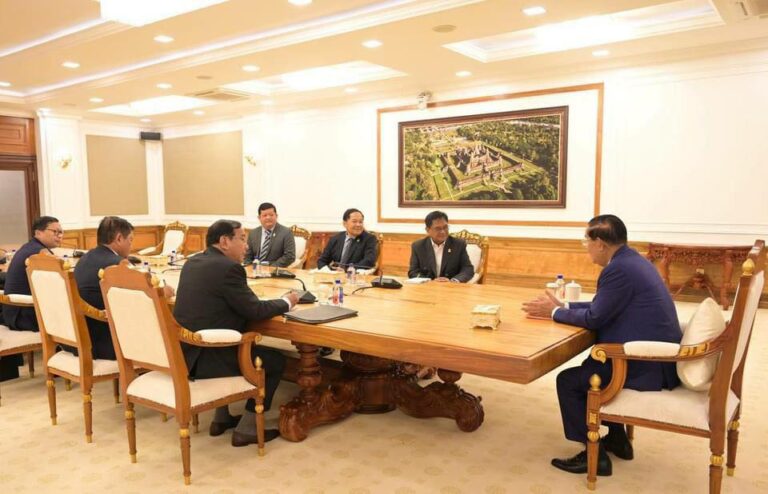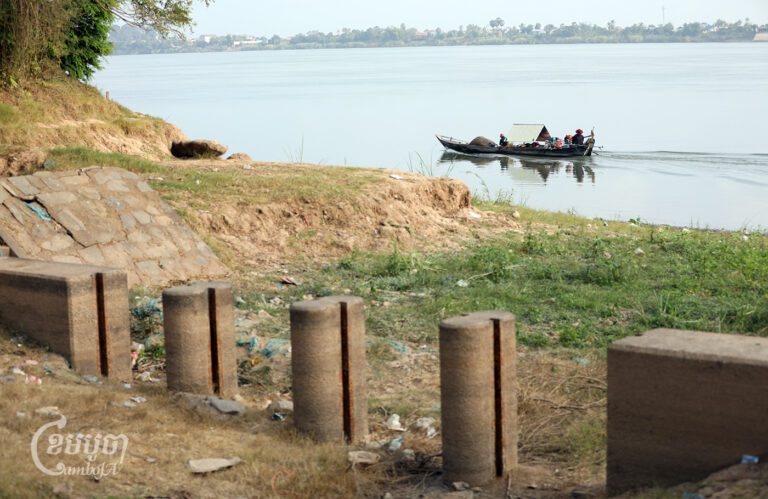Government officials besides ministers will retain their positions after the new cabinet is formed in August, Prime Minister Hun Sen said via a video posted on Twitter last Saturday.
“We will keep all officers who have been appointed as secretary of state, undersecretary of state, or government advisors to be continued [in the new government,]” Hun Sen said.
Hun Sen, who has stated his son will assume the role of prime minister in the new government, explained that subnational military and police, along with provincial and district governors, will remain in their current positions.
“There are no affected civil service positions,” Hun Sen stated. However, he noted that people above retirement age — 60 years-old for civil servants and 55 years-old for members of the armed forces — would be asked to step down.
“Please all of you do not worry about what to do next,” he added.
But Hun Sen explained that people holding multiple positions in government as secretary of states and minister delegates — ministers attached to the prime minister — would be asked to choose one position.
“This reforming does not affect many people,” Hun Sen said.
Government spokesperson Phay Siphan did not respond to requests for comment regarding how many minister delegates existed or to clarify their specific roles in governance.
The delegates attached to the general director at the department of taxation and the general department of customs and excise would remain unchanged, Hun Sen noted.
In a separate message on Sunday a video on his twitter, Hun Sen said that the Supreme Consultative Council will remain in the new government in order to develop the country together.
“We want to collect human resources, brain resources, to continue developing the country, including in a spirit of national unity, prosperity moving forward,” he said.
The Supreme Consultative Council (SCC) was formed to gather input from political parties who joined the 2018 elections, in which the ruling CPP won all 125 seats in the National Assembly. Sixteen minor political parties joined the SCC, but representatives from the court-dissolved CNRP, then the leading opposition party, were excluded.
“For political parties which failed to win in the election but have been registered legally at the Interior Ministry, whether they can join or not [Supreme Consultative Council] we will let the new prime minister and the new Royal Government consider that issue,” Hun Sen said.
Leading opposition party Candlelight was barred from participating in the elections over alleged technical issues in its registration.
Candlelight spokespon Kimsour Phearith said that the party has not considered joining the Supreme Consultative Council.
“We have not seen [SCC] any achievements, they can’t do anything,” he said, claiming the SCC has no power or influence in the government.
Pich Sros, a member of council and the president of the Cambodian Youth Party, which has been a supporter of the CPP, said he was grateful that the Supreme Consultative Council would continue.
“For me, when we have the right to serve people and the nation, I do not reject [to join]” Sros said. “We do politics for the nation and people’s interests.”
But with Hun Manet set to helm the government, other younger children of Cambodia’s elite have also been moving in to top positions. Chea Serey replaced her father Chea Chanto as the governor of the National Bank of Cambodia, following a royal decree on July 29. In a Facebook post on Monday, she pledged to support the leadership of Hun Sen.
Serey did not respond to requests for comment.
Deputy Prime Minister Yim Chhay Ly’s son, Yim Leat, and Senate president Say Chhum’s daughter Say Sam Ath, were also appointed as deputy governors of the NBC.

Government spokesperson Phay Siphan said that it is a historical moment for Cambodia to appoint a youthful scholar like Chea Serey, 42, to head the NBC, as well as for appointments of a younger generation of Cambodian leaders.
“They have been educated from the western countries and they work effectively,” he said.
“I do not know whether they have operated businesses or not, I don’t know,” Siphan replied when asked about whether conflicts of interests could arise by appointing children to their parents’ positions.
Soeng Senkarun, a senior investigator at rights group Adhoc, expressed concern that promoting children of government officials will lead to conflicts of interest and corruption.
“We are worried because this system [family-dominated governance] has happened for many years,” he said. “Nepotism and corruption remain when families dominate [positions], they will protect each other if someone has committed wrong activity.”
“We are upholding democratic process, why do we follow this habit [nepotism]?” he added. “We have to provide opportunities to those who have enough ability to have a role in government management.”


